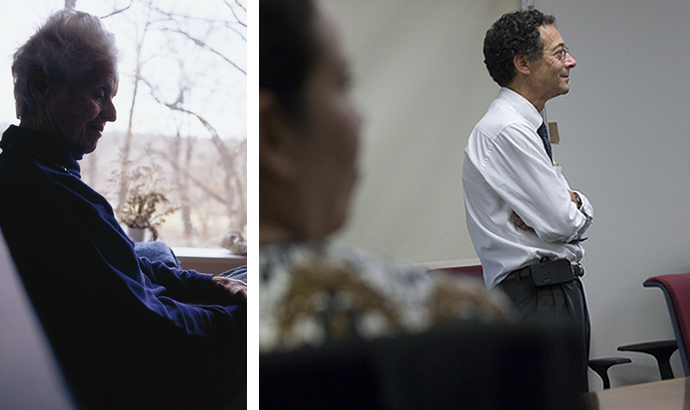David B. Reuben, MD
Developing Leaders and a Model for Alzheimer’s Care
Dr. Reuben is the Archstone Foundation Chair and Professor at the David Geffen School of Medicine at UCLA and directs the Multi-campus Program in Geriatrics Medicine and Gerontology. He serves as chief of the division of geriatrics at the UCLA Center for Health Sciences and Medical Center. In 1987, he received a Hartford Foundation Faculty Development Award in Geriatrics, and has since been one of the chief advisors and sounding boards for Foundation programs.
Although Dr. Reuben participated in several Hartford Foundation programs over the years, including the Centers of Excellence in Geriatric Medicine and Training, Geriatric Interdisciplinary Team Training, and Practicing Physician Education initiatives, he is most proud of his contribution to a geriatrics leadership program, which he crafted with Hartford Foundation program officers in the 1990s.
“Geriatrics was a young field then,” he says. “Some brand new chiefs of geriatrics divisions didn’t know what they were doing. They’d just get beaten up at administrative meetings. So we started a program to develop leaders in geriatrics.”

(Left) An older adult with Alzheimer’s Disease in Iowa City, IO.
(Right) David B. Reuben, MD, presenting at a Reynolds Foundation Mini-Fellowship meeting at the VA.
The result was the Association of Directors of Geriatric Academic Programs (ADGAP) Geriatric Leadership Development Program, which held an annual meeting for geriatric division chiefs and sponsored a leadership scholar component that offers participants counseling, mentoring, leadership programs, and other resources. Past scholars have gone on to develop geriatric programs at their own institutions. At least one has become a dean, and others, department chairs.
Later, in 2005, through the UCLA/Hartford Center of Excellence, Dr. Reuben and his colleagues used a small clinical supplement grant to develop a nurse practitioner (NP) co-management model that addressed five geriatric conditions: dementia, heart failure, incontinence, depression, and falls. Quality of care was much improved with NPs than with geriatricians alone, and Dr. Reuben leveraged his findings to obtain a grant from Unihealth Foundation to replicate the study in two community-based practices.
“The model worked just as well, if not better, in those settings,” he says, “and it became the basis for our team-based, NP co-managed Alzheimer’s and Dementia Care program.” Dr. Reuben obtained $1.25 million in philanthropic funding to get the program started, as well as a $3.2 million CMMI (Center for Medicare and Medicaid Innovations) Health Care Innovation Challenge award to expand it, and another grant to develop methodology for goal centered outcomes. “So the initial investment has spawned at least three grants,” he says, “and it could become a model program around the country for Alzheimer’s disease care.”